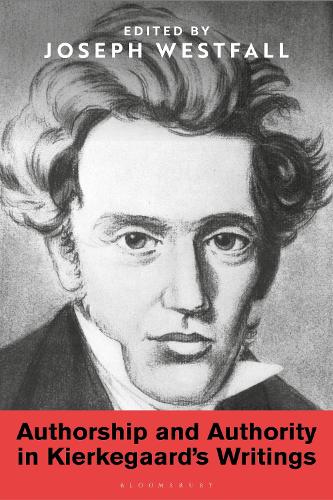
Authorship and Authority in Kierkegaard's Writings
(Paperback)
Available Formats
Publishing Details
Authorship and Authority in Kierkegaard's Writings
By (Author) Joseph Westfall
Bloomsbury Publishing PLC
Bloomsbury Academic
28th May 2020
United Kingdom
Classifications
Professional and Scholarly
Non Fiction
Ethics and moral philosophy
Phenomenology and Existentialism
Christianity
Theology
Literary studies: fiction, novelists and prose writers
198.9
Physical Properties
Paperback
258
Width 156mm, Height 234mm
367g
Description
Authorship is a complicated subject in Kierkegaard's work, which he surely recognized, given his late attempts to explain himself in On My Work as an Author. From the use of multiple pseudonyms and antonyms, to contributions across a spectrum of media and genres, issues of authorship abound. Why did Kierkegaard write in the ways he did Before we assess Kierkegaards famous thoughts on faith or love, or the relationship between 'the aesthetic,' 'the ethical,' and 'the religious,' we must approach how he expressed them. Given the multi-authored nature of his works, can we find a view or voice that is definitively Kierkegaards own Can entries in his unpublished journals and notebooks tell us what Kierkegaard himself thought How should contemporary readers understand inconsistencies or contradictions between differently named authors We cannot make definitive claims about Kierkegaards work as a thinker without understanding Kierkegaards work as an author. This collection, by leading contemporary Kierkegaard scholars, is the first to systematically examine the divisive question and practice of authorship in Kierkegaard from philosophical, literary and theological perspectives.
Reviews
Authorship and Authority or A Master of Disguises this collection by renowned and early career Kierkegaard scholars weaves a tapestry of different approaches and voices as diverse as Kierkegaards authorship itself. A must-read for anyone interested in the work of the elusive Dane and the meta-philosophy of his pseudonymous and non-pseudonymous writings. * Genia Schnbaumsfeld, Professor of Philosophy, University of Southampton, UK *
A practitioner of "the method of indirect communication" Kierkegaard wrote the works that made him immortal under an array of pseudonyms. He also published many texts under his own name and then reflected about the difference between the signed and unsigned works in his Journals, which were intended for publication. Anyone making a serious approach to Kierkegaard must grapple with the hydra-headed question of Kierkegaards authorship. Boasting a distinguished roster of contributors, this book is balanced, comprehensive, rigorously argued and above all an indispensable guidewire for anyone entering the labyrinth of Kierkegaard's oeuvre. * Gordon Marino, Professor of Philosophy and Director of the Hong Kierkegaard Library, St. Olaf College, USA *
This excellent introduction to the most basic question in Kierkegaard scholarshipIs there an authoritative Kierkegaard in Kierkegaards authorshiphas been sorely needed for years! Westfall has given us a text that presents an exceptionally thorough and even-handed orientation to the question while also enabling a richly-contested discussion among some of the best scholars in the field. * Paul Martens, Associate Professor of Religion, Baylor University, USA *
Author Bio
Joseph Westfall is Associate Professor of Philosophy at the University of Houston-Downtown, USA. He is the author of The Kierkegaardian Author (2007), editor of The Continental Philosophy of Film Reader (Bloomsbury, 2018), and co-editor of Foucault and Nietzsche: A Critical Encounter (Bloomsbury, 2018).
